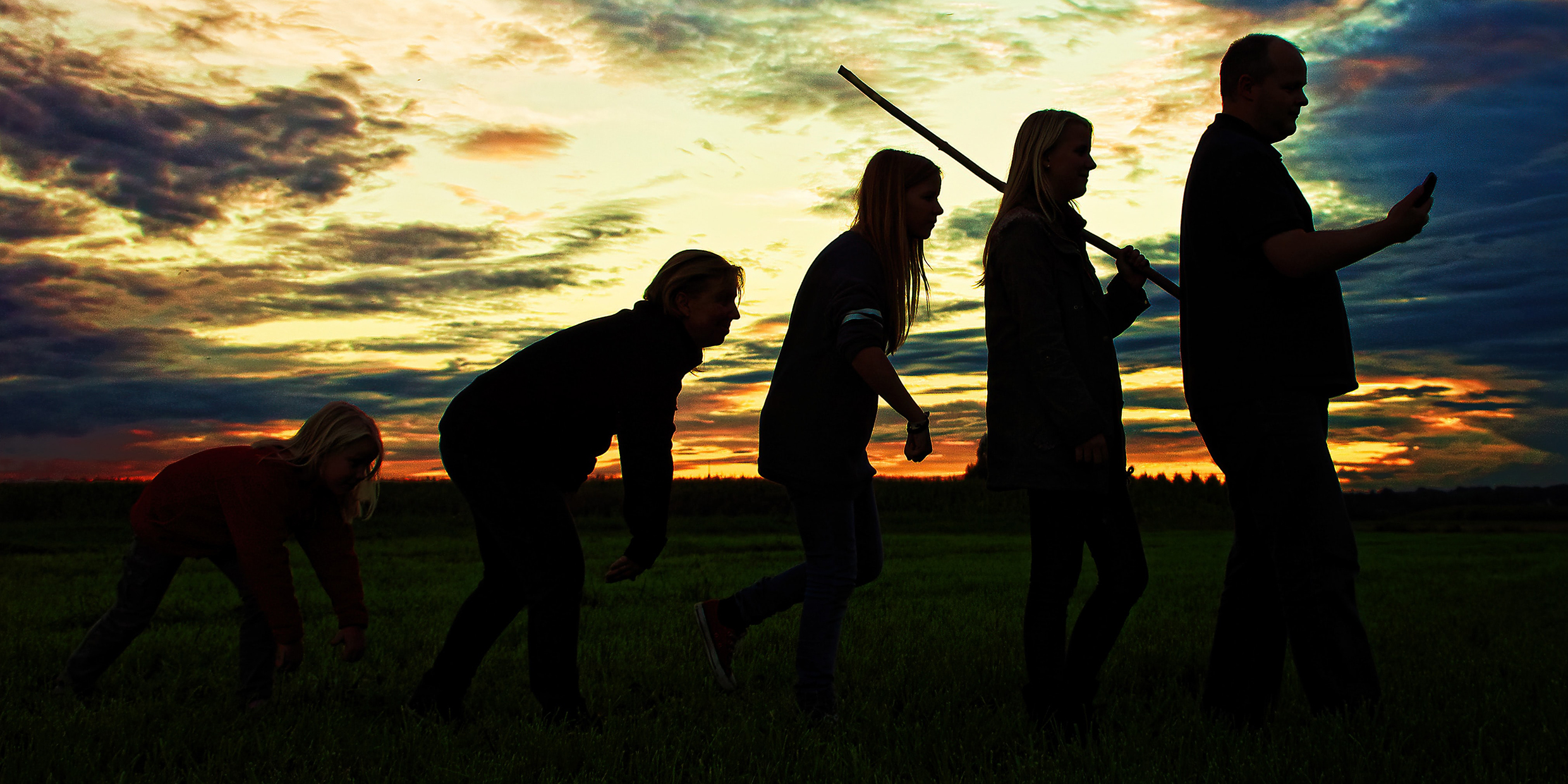Originally published 21 October 1996
We’ve all seen the familiar image of a fish waddling onto the shore, preceded by a quadruped rising onto its hind legs, a knuckle-dragging simian, thick-browed Neanderthal, and — leading the parade of progress — bright-eyed Homo sapiens striding erect.
Evolution, as we have imagined it, is an ascent from the primal slime, through sponges, bugs, dinosaurs, and apes to — well, to us, the capstone and glory of creation.
Pushed from behind by the blind engine of natural selection, or drawn upwards by the guiding hand of God, we are the inevitable product of a thrust towards complexity and consciousness.
Evolution is progress. We are its culmination.
Or so the story goes.
Stephen Jay Gould, evolutionary biologist, Harvard teacher, prolific writer, baseball fan, and author of the provocative new book, Full House: The Spread of Excellence from Plato to Darwin, has another idea.
Gould has made something of a career of poking holes in our presumption of biological primacy. It is his contention that the ancient idea of a Great Chain of Being, ascending from the lowliest creatures to humans at the apex, has nothing to do with the world described by science.
In the real world, says Gould, variation, not progress, is the supreme value. We evolve together — bacterium, lowly worm, and philosopher — arm-in-arm, so to speak, adapting to our respective environmental niches, spreading excellence across the board.
In his view of things, the bacterium has as much right to claim primacy as we do. Perhaps more right, since bacteria have been and will probably always remain the most enduring and populous lifeform on the planet.
To illustrate his argument, Gould makes a delightful digression into baseball, asking the question: Why we don’t have any more .400 batters?
The extinction of .400 hitting is usually interpreted as a sign that “they don’t make ’em like they usta.” Not so, says Gould. We no longer have .400 hitters because of a shrinkage in variation from best to worst, and a spread of excellence among hitters, pitchers, fielders. He marshals an impressive array of statistics to prove his point.
What does baseball have to do with evolution? Gould turns the baseball argument on its head to show that the “rise of man” is no more real than the “decline of .400 hitting.” Rather, our appearance on the continuum of life is a consequence of expanding variation. Progress has nothing to do with it.
We are one tail of a bell curve of randomly-generated variation skewed toward complexity because it can’t go the other way (living creatures can’t get much simpler than bacteria). The peak of the bell curve, where the greatest numbers lie, still resides, as it always did, with bacteria.
The common error we make when considering the “decline of .400 hitting” or the “rise of man” is to mistake contractions or expansions in the amount of variation for trends. Progress in evolution is an illusion, says Gould. One creature had to be more complex than the others; it just happens to be us.
OK, we figure, so we’re the tail of a skewed bell curve rather than the preordained glory of creation. But it’s our tail. The tail had to develop and grow. We are the most complex of creatures, the inevitable consequence of variation and the spread of excellence. We are still the apple of God’s eye.
Gould doesn’t even allow us this consolation. “Humans are here by the luck of the draw, not the inevitability of life’s direction or evolution’s mechanism,” he says. If we went back to the beginning and re-played evolution, the outcome would be entirely different. There is nothing inevitable about us.
What are we to make of this? Can our egos take this pummeling? Can we maintain our confidence, our optimism, our faith in a meaningful universe if we are nothing more than the quirky tail of a skewed statistical distribution? Should we dismiss Gould as a curmudgeonly crank and continue basking in the glow of our assumed superiority?
First of all, it is worth noting that many other evolutionary biologists share Gould’s views. Indeed, his thesis was already implicit in Darwin’s work.
“Never say higher or lower,” Darwin jotted in the margin of a book. And again, in a private notebook: “Why is thought, being a secretion of the brain, more wonderful than gravity, a property of matter? It is our arrogance, our admiration of ourselves.”
No one will deny that humans can be arrogant, or that we are inclined to narcissism. Nevertheless, I doubt many of us will warmly embrace Gould’s — and Darwin’s — conclusion. The notion of our preordained primacy is deep within us, embedded in our myths and legends, enshrined in our theologies, perhaps even hardwired into our brains.
But myths and legends have been found to be false. Theologies have been revised. And civilization depends upon the cultural suppression of some of our animal instincts. What we wish to be true is an unreliable guide to truth. Wishing our primacy does not make it so.
We have lots more to learn about evolution, and maybe some future Darwin will demonstrate a built-in tendency towards complexity and consciousness. The new mathematics of complexity may throw fresh light on the subject.
But we ain’t there yet. As Gould says, “The basic theory of natural selection offers no statement about general progress, and supplies no mechanism whereby overall advance might be expected.”



